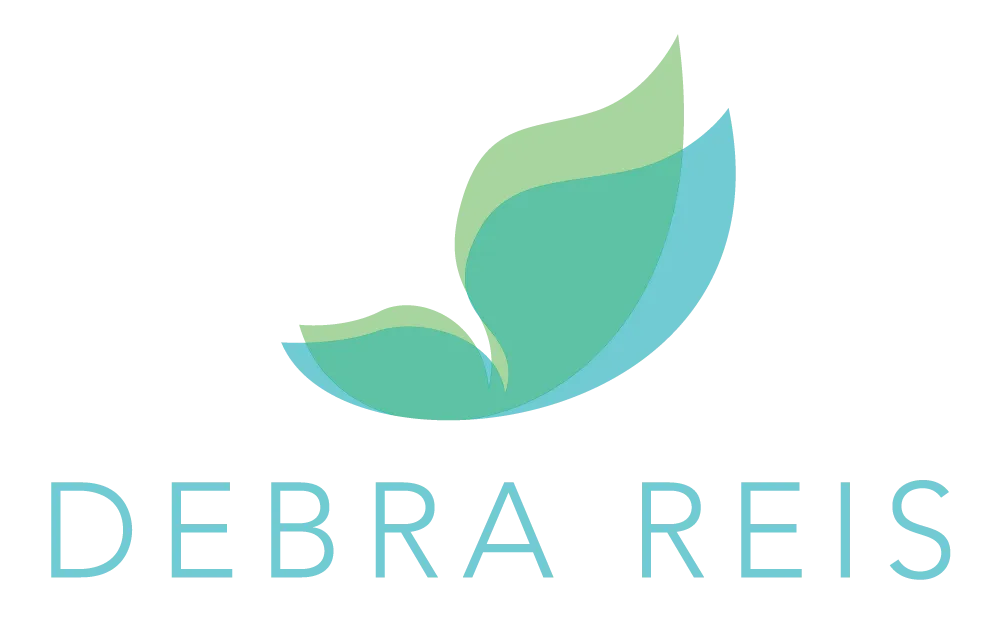BLOG
Supportive Therapies For Better Outcomes — Enrich Your Life Through Relaxation Techniques, Aromatherapy, and Gentle Movement.

Nurses Value Support Over Financial Gain
Nursing is one of the noblest and most demanding professions in the world. Nurses are the backbone of healthcare systems, providing essential care, compassion, and expertise to patients in their times of need. While the importance of nurses has been underscored during the COVID-19 pandemic, it has also brought to light the longstanding issues nurses face worldwide. Among these issues, the debate often concerns whether nurses need more money or better organizational support. This article will explore the crucial need for organizational support for nurses and why it is just as important, if not more so, than financial compensation.
The Reality of Nursing
Nurses are indeed well aware of the financial challenges associated with their profession. Long hours, high levels of stress, and the emotional toll of caring for sick patients and their families make nursing a challenging occupation. Many nurses feel that they need to be adequately compensated for their work, especially when compared to the responsibilities they shoulder. The demand for higher wages is understandable, but only part of the equation.
Recent surveys identify that nurses value organizational support and acknowledgment of their expertise and contributions over financial gains. Healthcare organizations must take a serious interest in other avenues to help retain nurses in the clinical setting when surrounded by chaos and stressful situations.
Employee Assistance Programs (EPA) are beneficial but unavailable or acceptable to all. In addition, they don’t address the immediate concerns that nurses face in the clinical unit. Other methods to bring empowerment and balance for nurses quickly in chaos must be explored and evaluated.
Addressing Nurse Pain Points and Potential Solutions

Burnout and Mental Health: Nursing, particularly in high-stress environments, can lead to burnout, anxiety, and depression. Nurses often face traumatic situations and need mental health support.
A well-organized system would provide counseling services, mental health days, and stress management programs to help nurses cope with these challenges. These programs can be provided quickly and effectively. Consider leveraging the program with contact hours and over lunch to help the nurse learn in a more relaxed environment.
Workplace Safety: Organizational support should also prioritize workplace safety. Nurses should access proper protective equipment, and their concerns about unsafe working conditions should be addressed promptly. This can prevent injuries and illnesses among nurses.
Department councils allow nurses to address safety concerns and participate in the solutions. Stress management programs show nurses how to be part of a cohesive team that promotes safety and well-being for patients and staff.
Training and Education: Continuous learning is vital in the healthcare field. Hospitals and healthcare institutions should invest in ongoing training and education for nurses to update their skills. This ensures that nurses can provide the best possible care to their patients.
Recent surveys showed that nurses valued organizations that provided them with meaningful continuing education. Programs that share self-care and stress management tips benefit the nurse and are part of a plan of care given to others.
Staffing Levels: Short-staffing is a common issue in many healthcare settings. Organizational support means ensuring enough nurses to handle patient loads safely. Adequate staffing can reduce nurse burnout, improve patient outcomes, and enhance job satisfaction.
Organizations that promote and provide practical self-care activities nurses can do quickly during a stressful situation will empower clinical teams for critical thinking and problem-solving.

Empowerment and Decision-Making: Nurses are often at the forefront of patient care. They should be involved in decision-making processes that affect their work. When nurses have a voice in how their units or departments are run, it can lead to more efficient and effective care delivery.
Organizations that support council structure for team decision-making will find greater satisfaction among nurses. The structure is supported by providing the healthcare team with tools and resources that foster healthy self-care activities, bringing a balance within the entire team.
Recognition and Appreciation: Beyond monetary rewards, nurses need recognition and appreciation for their hard work. This can come through awards, acknowledgment programs, or simple gestures of gratitude from hospital leadership.
Programs supporting self-care and professional development show nurses and others the importance and value of their health and well-being. They do matter and make a difference to the entire organization.
The Value of Support and Recognition
While the demand for increased financial compensation is valid, it is essential to recognize that nurses need more than just money. They need a supportive, safe, and well-organized work environment that acknowledges and addresses their unique daily challenges.
By investing in organizational support programs, healthcare institutions can improve the well-being of their nursing staff and enhance the overall quality of patient care.
In conclusion, the discussion should shift from an "either/or" debate of money versus support to a more comprehensive approach that combines both. Nurses deserve fair compensation for their hard work but also a workplace that values their well-being and provides the resources needed to excel in their profession.
It's time for healthcare organizations to prioritize the holistic needs of their nursing workforce to ensure the long-term sustainability of quality healthcare.

This blog is provided for educational and informational purposes only and is not medical, mental health, or healthcare advice. Although Debra Reis is a Clinical Nurse Specialist licensed in the state of Michigan, she is not acting in that capacity here. Debra Reis is acting as a holistic educator and consultant, not as a licensed medical health professional or in her professional capacity as a Clinical Nurse Specialist. The information presented here is not intended to diagnose, treat, heal, cure or prevent any illness, medical condition, or mental or emotional condition. Working with us is not a guarantee of any results. Debra Reis, Wellness Services, LLC owns all copyrights to the materials presented here unless otherwise noted.

Nurses Value Support Over Financial Gain
Nursing is one of the noblest and most demanding professions in the world. Nurses are the backbone of healthcare systems, providing essential care, compassion, and expertise to patients in their times of need. While the importance of nurses has been underscored during the COVID-19 pandemic, it has also brought to light the longstanding issues nurses face worldwide. Among these issues, the debate often concerns whether nurses need more money or better organizational support. This article will explore the crucial need for organizational support for nurses and why it is just as important, if not more so, than financial compensation.
The Reality of Nursing
Nurses are indeed well aware of the financial challenges associated with their profession. Long hours, high levels of stress, and the emotional toll of caring for sick patients and their families make nursing a challenging occupation. Many nurses feel that they need to be adequately compensated for their work, especially when compared to the responsibilities they shoulder. The demand for higher wages is understandable, but only part of the equation.
Recent surveys identify that nurses value organizational support and acknowledgment of their expertise and contributions over financial gains. Healthcare organizations must take a serious interest in other avenues to help retain nurses in the clinical setting when surrounded by chaos and stressful situations.
Employee Assistance Programs (EPA) are beneficial but unavailable or acceptable to all. In addition, they don’t address the immediate concerns that nurses face in the clinical unit. Other methods to bring empowerment and balance for nurses quickly in chaos must be explored and evaluated.
Addressing Nurse Pain Points and Potential Solutions

Burnout and Mental Health: Nursing, particularly in high-stress environments, can lead to burnout, anxiety, and depression. Nurses often face traumatic situations and need mental health support.
A well-organized system would provide counseling services, mental health days, and stress management programs to help nurses cope with these challenges. These programs can be provided quickly and effectively. Consider leveraging the program with contact hours and over lunch to help the nurse learn in a more relaxed environment.
Workplace Safety: Organizational support should also prioritize workplace safety. Nurses should access proper protective equipment, and their concerns about unsafe working conditions should be addressed promptly. This can prevent injuries and illnesses among nurses.
Department councils allow nurses to address safety concerns and participate in the solutions. Stress management programs show nurses how to be part of a cohesive team that promotes safety and well-being for patients and staff.
Training and Education: Continuous learning is vital in the healthcare field. Hospitals and healthcare institutions should invest in ongoing training and education for nurses to update their skills. This ensures that nurses can provide the best possible care to their patients.
Recent surveys showed that nurses valued organizations that provided them with meaningful continuing education. Programs that share self-care and stress management tips benefit the nurse and are part of a plan of care given to others.
Staffing Levels: Short-staffing is a common issue in many healthcare settings. Organizational support means ensuring enough nurses to handle patient loads safely. Adequate staffing can reduce nurse burnout, improve patient outcomes, and enhance job satisfaction.
Organizations that promote and provide practical self-care activities nurses can do quickly during a stressful situation will empower clinical teams for critical thinking and problem-solving.

Empowerment and Decision-Making: Nurses are often at the forefront of patient care. They should be involved in decision-making processes that affect their work. When nurses have a voice in how their units or departments are run, it can lead to more efficient and effective care delivery.
Organizations that support council structure for team decision-making will find greater satisfaction among nurses. The structure is supported by providing the healthcare team with tools and resources that foster healthy self-care activities, bringing a balance within the entire team.
Recognition and Appreciation: Beyond monetary rewards, nurses need recognition and appreciation for their hard work. This can come through awards, acknowledgment programs, or simple gestures of gratitude from hospital leadership.
Programs supporting self-care and professional development show nurses and others the importance and value of their health and well-being. They do matter and make a difference to the entire organization.
The Value of Support and Recognition
While the demand for increased financial compensation is valid, it is essential to recognize that nurses need more than just money. They need a supportive, safe, and well-organized work environment that acknowledges and addresses their unique daily challenges.
By investing in organizational support programs, healthcare institutions can improve the well-being of their nursing staff and enhance the overall quality of patient care.
In conclusion, the discussion should shift from an "either/or" debate of money versus support to a more comprehensive approach that combines both. Nurses deserve fair compensation for their hard work but also a workplace that values their well-being and provides the resources needed to excel in their profession.
It's time for healthcare organizations to prioritize the holistic needs of their nursing workforce to ensure the long-term sustainability of quality healthcare.

This blog is provided for educational and informational purposes only and is not medical, mental health, or healthcare advice. Although Debra Reis is a Clinical Nurse Specialist licensed in the state of Michigan, she is not acting in that capacity here. Debra Reis is acting as a holistic educator and consultant, not as a licensed medical health professional or in her professional capacity as a Clinical Nurse Specialist. The information presented here is not intended to diagnose, treat, heal, cure or prevent any illness, medical condition, or mental or emotional condition. Working with us is not a guarantee of any results. Debra Reis, Wellness Services, LLC owns all copyrights to the materials presented here unless otherwise noted.


